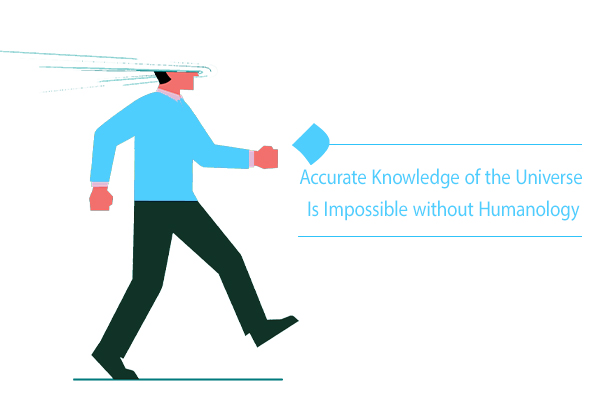Self-Knowledge Is the Prerequisite for Knowing the Universe
When we were born, we faced a world that had surrounded us. It was a world much bigger than our mother’s womb and with far more possibilities. This world has been prepared for us, and the way we define ourselves as human beings determines how much we can benefit from it.
As children, we had wishes and desires that we were not allowed to fulfill, simple things like pressing all the keys on the computer keyboard at once or eating all the chocolate in the box. These were just simple desires which we could not satisfy under the watchful eyes of our parents, yet they sparked a bigger dream in our minds: the dream of growing up faster to do whatever we wanted. But we did not know that, even as adults, we are not allowed to do many things either. The difference is that in childhood, it was others who set the limits for us, but now it is us who place limitations on ourselves.
This happens because we do not know ourselves well and have an incomplete knowledge about ourselves and our abilities.
The Relationship between Human Beings and the Universe
God created the entire universe for us humans[1] to use it, enjoy it, meet our needs, grow, and reach the ultimate goal of our existence, i.e. manifesting His names and attributes. However, since our definition of being human is different from that of God, we cannot make use of this world as much as God has intended for us.
Imagine that you want to use a high-tech computer, but you get a “No Access” notification when you try to log in. This is exactly what we are doing to our lives right now. From the very beginning, we have been granted access and given the opportunity to benefit from all the blessings of this world, but due to having false beliefs and misconceptions about ourselves, we have not even attempted to make use of these blessings. We behave like a CEO who has defined the scope of his authority, resources, and benefits as that of an ordinary employee. Moreover, he flatly refuses to accept the advice of those who try to tell him about what is going on.
We will be really disappointed once we realize this, especially because we have spent most of our lives this way. We will be even more upset when we realize that the blessings and opportunities available to us could have satisfied the needs and desires that we have always carried around in our imagination.
Our Perception of the Universe Depends on Our Point of View
Our view of ourselves not only sets the direction of our lives and the scope of our desires, but it also shapes our relationship with the world’s phenomena. Our point of view also determines how we affect the universe and serve our fellow human beings. Our viewpoint about ourselves and the universe, i.e., our worldview, is the source of all our behaviors. Generally, it can be said that the prevailing worldview in a society determines the behavior of people within that society.
If you are familiar with the Islamic Golden Age, you may be wondering how people could achieve such a level of intellectual maturity and creativity at a certain point in history. Why do we not witness geniuses like al-Khwarizmi[2], al-Biruni[3], al-Razi[4], or Bahaddin Amili[5] in our time? What was their viewpoint about the world which enabled them to create such unrivaled works?
In fact, their common ground lies in their worldview and beliefs. They believed that God created the entire universe for human beings[6] and that He made nothing in vain[7]. With such a viewpoint, we will find no object or phenomena unfamiliar. We will understand our existential relationship with the entire universe and naturally try to discover this relationship. Indeed, the main function of science is to discover the relationships or mathematical rules which govern the creation. This viewpoint about the universe and nature can lead to rapid scientific progress.
We Must Believe That We Are Humans
As members of this world, we have two options ahead of us. Like other creatures, we can consider ourselves a part of this world; live our normal lives; lower our needs, joys, and desires to the level of material, vegetative, and animalistic needs and desires ; and finally face death, whether we want it or not.
Or we can believe that we are human beings. We can believe that the entire universe, with all its wonders, was created for us and is in perfect harmony with our existential structure. No phenomena in this world is accidental or meaningless in relation to us. Rather, they serve to help us ‘become’ who God meant us to be. Living in such a world will undeniably be more joyful.
But if that is the case, which dimension of our existence is going to be nurtured by roaring sea waves, towering mountains, fine and coarse sands, starry night sky, and the soft wings of birds? Which innate desires are they going to fulfill? Which of God’s names or attributes do they remind our true self of? Finally, how can they help us manifest God’s names and attributes?
We will further discuss this topic in the following articles.
References
[1]. Quran, 2:29
[2]. A Persian polymath
[3]. An Iranian scholar and polymath
[4]. A Persian physician, philosopher, and alchemist
[5]. A scholar, poet, philosopher, architect, mathematician, and astronomer
[6]. Quran, 2:29
[7]. Quran, 38:27

